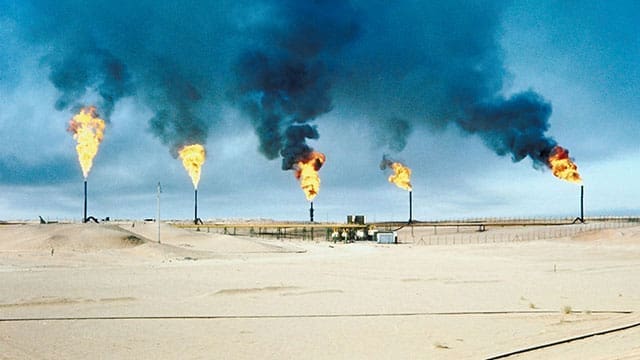The global trade war is rattling oil markets. OPEC+ is pumping out more supply, demand is slipping, and energy producers face mounting uncertainty

For interview requests, click here
Global energy markets are being pulled in multiple directions—and the average consumer may soon feel it. Trade wars, geopolitical tensions and shifting production strategies are distorting prices and creating uncertainty for oil producers and governments alike. As global powerhouses adjust their output and tariffs start to bite, the outlook for oil—and the broader energy sector—is anything but clear.
The latest trade war escalation is adding to the pressure. If recession-like conditions follow, global energy demand and pricing could take a hit. Oil markets are already receiving mixed signals, as OPEC+—the expanded group of oil producers led by Saudi Arabia and Russia—plans to revive idle production even as global demand softens.
U.S. President Donald Trump’s reciprocal tariffs on key trading partners are set to take effect on April 2. “U.S. stocks are struggling, and longer-term demand fears are on the minds of most traders as tariffs begin to kick in on cars not manufactured in the U.S.,” said Dennis Kissler, senior vice-president of trading at BOK Financial Securities, in comments to CTV.
Market watchers are trying to assess whether supply or demand will matter more in the months ahead. Vitol CEO Russell Hardy said last week that while some threats to global supply exist, there is still enough oil to meet demand for the next couple of years. Yet geopolitics is shifting that balance: Venezuela, for instance, is increasing oil exports to China to work around U.S. sanctions and secondary tariffs.
The uncertainty is being felt by oil majors as well. Trump has called on American producers to “drill, baby, drill,” but energy companies are hesitant. With oil prices already low, additional output could flood the market further and push prices even lower.
“Right now, with low oil prices, I think we’re going to start to see a lot of companies starting to pare back on their capital spending,” said Clark Williams-Derry, energy finance analyst at the Institute for Energy Economics and Financial Analysis, in an interview on CNBC.
Despite the caution, U.S. oil production continues to surge. In December 2024, American oil and gas firms reached a record output of 13.49 million barrels per day, the highest in the country’s history, according to the U.S. Energy Information Administration.
But that record-breaking output comes with a risk. More oil on the market can push prices down further, discouraging new drilling—even forcing some companies to halt operations if prices fall too far.
Other major players are adjusting. Saudi oil giant Aramco is expected to cut its official selling price—the baseline price set for its crude exports—by up to $2 per barrel, the lowest level in three months. This move is aimed at maintaining market share as demand in Asia softens, according to a Reuters survey of regional traders and refiners.
Meanwhile, OPEC+ has confirmed a 138,000-barrel-per-day increase starting in April, with another hike likely in May. However, some member countries are being asked to cut back to compensate for past overproduction.
Analysts remain cautious about the demand outlook. Economic indicators like China’s Purchasing Managers’ Index—a key measure of industrial activity—will be closely watched in the coming weeks. While sanctions on Venezuela and Iran may tighten supply, the bigger concern is falling demand driven by a potential trade war slowdown.
For everyday consumers, these dynamics could mean more volatile prices at the pump and on utility bills. If energy companies hold off on investment, it could also affect job creation and future supply security. As the global economy teeters between recovery and retrenchment, the energy sector sits squarely on the fault line.
Toronto-based Rashid Husain Syed is a highly regarded analyst specializing in energy and politics, particularly in the Middle East. In addition to his contributions to local and international newspapers, Rashid frequently lends his expertise as a speaker at global conferences. Organizations such as the Department of Energy in Washington and the International Energy Agency in Paris have sought his insights on global energy matters.
Explore more on Energy sector, Energy security, Cost of living, World economy
The views, opinions, and positions expressed by our columnists and contributors are solely their own and do not necessarily reflect those of our publication.
Troy Media is dedicated to empowering Canadian community news outlets with independent, insightful analysis and commentary. Our mission is to support local media in fostering an informed and engaged public by delivering reliable content that strengthens community ties, enriches national conversations, and deepens Canadians’ understanding of one another.



